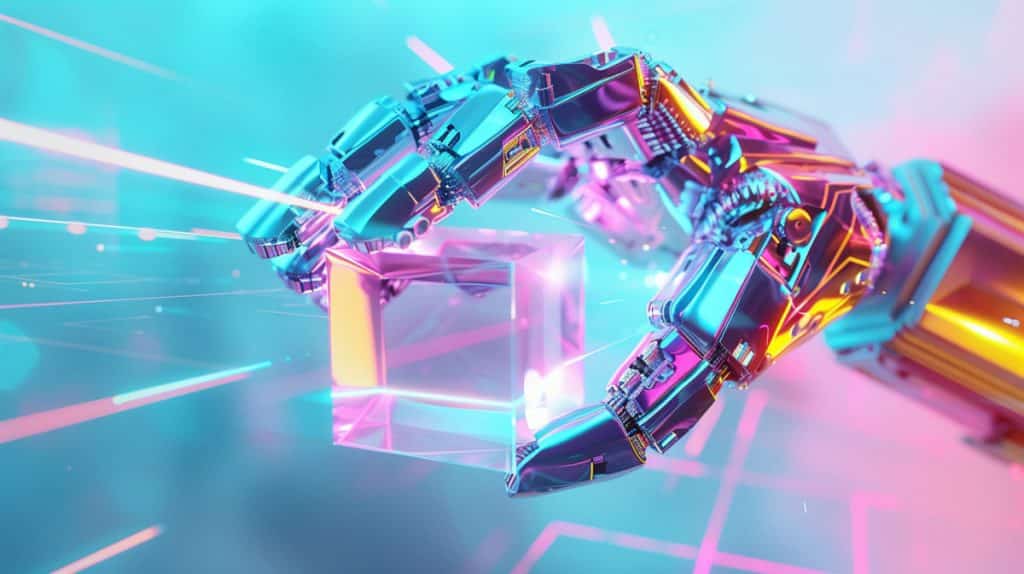
Posted: February 22, 2024 10:36 AM Updated: February 22, 2024 10:37 AM

Correction and fact check date: February 22, 2024, 10:36 AM
briefly
In this article, we explore the intersection of NFTs and cryptocurrency mining to reimagine digital ownership. We discuss the expansion of NFTs beyond art, evolving mining processes, and environmental issues. NFTs prioritize individuality and decentralized governance, but must address environmental impacts for sustainability.
The growing use of non-fungible tokens has changed the way we view and engage with digital data. At the same time, processes previously limited to cryptocurrencies, such as Bitcoin mining, have spread to the NFT ecosystem.
When we talk about NFTs and mining, we need to understand what these two technologies mean before discussing their symbiosis. These unique virtual assets often exist as non-physical goods that serve to confirm ownership of a specific item. These features of NFTs are made possible by blockchain technology, which is most often connected to the Ethereum network. Unlike cryptocurrencies like Bitcoin or Ethereum, which can be exchanged individually, NFTs are non-fungible and each object is unique and exists as a single copy.

NFTs are currently being used in a variety of industries and are a source of income for individuals. They’re not just digital art anymore. Tokenized goods such as virtual real estate, online collectibles, gaming items, and even tweets have already been converted to non-physical tokens, and due to their adaptability, the industry is growing rapidly, attracting musicians, artists, and content creators. A new approach to promoting and distributing your work.
The method used by various cryptocurrencies to create new coins and verify new transactions is called mining. This involves an extensive, global, decentralized computer network that secures and verifies the blockchain, or virtual registry that tracks Bitcoin transactions. Computers within the network receive new coins in return for their computing power. This is a kind of loop where the coins provide incentives to miners to keep the blockchain up to date, NFT miners secure and maintain the network, and the blockchain pays miners in tokens.
Because mining has historically been associated with proof-of-work cryptocurrencies like Bitcoin, NFTs bring a new type of mining focused on producing new assets rather than verifying their existence.
When we talk about NFT cryptocurrency mining, this often refers to the act of uploading materials online to create and add unique tokens to the blockchain through NFT mining software that facilitates various types of assets. Afterwards, the ownership and legitimacy of the assets are verified by the blockchain, which documents and authenticates these transactions. To increase scalability and energy efficiency, several blockchains are currently transitioning from proof-of-work systems to proof-of-stake systems. In a PoS system, validators can participate in NFT mining and verification to strengthen network security and even receive rewards in the process.
Smart contracts are self-executing contracts whose terms are embedded directly in the code and are also used in the mining process. These contracts often make it easier to create, verify, and transfer NFTs. It also automates ownership and transaction processes and ensures the legitimacy and uniqueness of every token. Upon uploading data and executing a smart contract, ownership of a specific non-physical item is represented by a unique token that is mined and stored on the blockchain, providing immutable proof of ownership.
Based on blockchain technology and smart contracts, NFTs represent a fundamental shift in digital ownership and, unlike Bitcoin, require creative processes that prioritize individuality, openness, and decentralized governance, according to Metaverse Post. As of now, NFTs actually harm the environment, so as the ecosystem evolves, it will be important to improve the technology to ensure a sustainable future for these innovations.
disclaimer
In accordance with the Trust Project Guidelines, the information provided on these pages is not intended and should not be construed as legal, tax, investment, financial or any other form of advice. It is important to invest only what you can afford to lose and, when in doubt, seek independent financial advice. Please refer to the Terms of Use as well as the help and support pages provided by the publisher or advertiser for more information. Although MetaversePost is committed to accurate and unbiased reporting, market conditions may change without notice.
About the author
Viktoriia is a marketing researcher and copywriter with a background in international relations. Her professional portfolio includes writing research papers focusing on the import and export of products to Europe and Asia. Her proficient command of the Chinese language and her time spent in China have expanded her capabilities to master not only the European market but also the Chinese and Singaporean markets. Currently living in Italy, Viktoriia continues to deepen her knowledge and skills in the field of marketing and copywriting. Her experience allows her to carry out analytical work and write texts on a variety of topics, ensuring that they are accessible to a wide audience.
more articles

Viktoriia is a marketing researcher and copywriter with a background in international relations. Her professional portfolio includes writing research papers focusing on the import and export of products to Europe and Asia. Her proficient command of the Chinese language and her time spent in China have expanded her capabilities to master not only the European market but also the Chinese and Singaporean markets. Currently living in Italy, Viktoriia continues to deepen her knowledge and skills in the field of marketing and copywriting. Her experience allows her to carry out analytical work and write texts on a variety of topics, ensuring that they are accessible to a wide audience.


